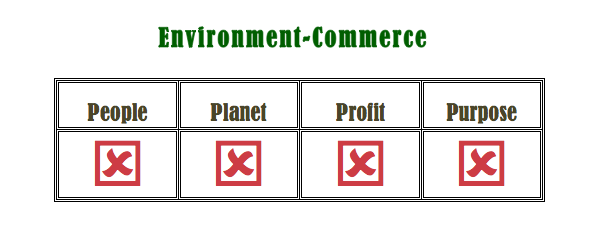What is the Trans-Pacific Partnership?
The Trans-Pacific Partnership (“TPP”) is one of the largest trade agreements that has been developed by various nation states. Yet, it is conducted almost entirely in secret. Much of the public has been sheltered from the truth of this trade agreement. The motives for such secrecy are gradually being exposed via the partnership Big Brother has with multi-faceted corporations, who have alliances with developing nations that lack a strong foothold in the global industry.
What is the Trans-Pacific Partnership?
In short, it is a trade agreement between the U.S., Canada and a number of nations in the Asia-Pacific Region that has been under negotiation since 2010. Originally, the TPP began as an agreement between Singapore, Chile, New Zealand and Brunei. According to Lyda Depillis from the Washington Post, the TPP was designed, in part, to eliminate tariffs on goods and services. Innovative countries, including Japan and Korea, which are responsible for 40 percent of the world’s GDP, will continue to expand the TPP’s revenue. Rather than focusing solely on goods and services, the TPP also encompasses a broad range of legal issues and foreign policies.
http://www.youtube.com/watch?v=bPIsjH25GHoWhy Haven’t I Heard About It?
At first glance, the TPP may not seem like an issue that is worth much attention. However, the confidential nature of the trade pact, which, of course, involves 29 chapters and a large portion of North America and the Asia-Pacific region, raises red flags. In fact, the TPP signed a confidentiality agreement that allows it to share information solely with “government officials and individuals, who are part of the government’s domestic trade advisory process.” Additionally, Obama chose to fast track the TPP, by practically circumventing a Congressional Review. Bill Moyers, who recently met with Yves Smith and Dean Baker, co-director of the Center for Economic and Policy Research, said, “This really is a deal that’s being negotiated by corporations for corporations and any benefit it provides to the bulk of the population of this country will be purely incidental.”
Undeveloping the Transnational Web
The TPP’s power to ‘undevelop’ ultimately lies in the hands of the people. When a transnational trade agreement of this enormity slips before the eyes of the public, it must be brought to light and reformulated. Instead, the TPP should be fully transparent and disclose its true objectives. The TPP should also grant full Congressional Review, since Congress can alter partisan interests to protect the interests of the people rather than contributing indirectly to the luxe of large corporations. The sustainable alternative rings true and, as such, the TPP should fairly represent all interests, including those of smaller and mid-size businesses. Nations involved in or affected by the TPP should review the agreement. Each should commit to a study process designed for a pact of this proportion, as opposed to lengthy negotiations of a 4-5 year period. Ultimately, Big Brother ‘s relationship with the larger corporations and those smaller industries may work in an adverse manner, but only time will tell.
Yes, No, or Neither
The TPP ultimately questions the role of free trade. Do trade agreements level the playing field for all participants? Should multi-national corporations dictate trade policy?
Yes– On the one hand, the TPP offers a great deal of assistance to developing nations and is expected to reduce the cost of tariffs. In general, the pact is expected to increase revenue on a broad scale; as Depillis notes, “The Peterson Institute for International Economics estimates the U.S. will realize $78 billion more per year under its assumptions about what the TPP will include, and $267 billion annually if free trade is expanded to the rest of the Asia-Pacific region.” When it comes to profit, the TPP has its benefits, but only if expanded to a free trade agreement.
No– Though the profits will increase in the long run, they will not be evenly distributed. Specifically, the TPP aims to benefit big business and multi-national corporations that naturally possess the upper hand. Additionally, the TPP innately defies the Voice of the People by repurposing the President’s fast track authority to bypass Congress. The fact that the Pact was essentially clandestinely formulated may signal a greater underlying issue.
Neither– Scrapping the Agreement and starting the process over creates an inclusionary negotiation that best serves all interested parties.
Does the TPP meet the standard for the quadruple bottom line?














